
“Fists of Bruce Lee” US Theatrical Poster
Director: Ho Chung Tao
Producer: Chang Yon Har
Cast: Bruce Li (Ho Chung Tao, James Ho), Chan Wai Lau, Lo Lieh, Wong Fei Lung, Wong Chi Sang, Paul Wei Ping Ao, Sham Chin-Bo, Chu Shao-Hwa, Robert Kerver
Running Time: 94 min.
By Joseph Kuby
Semi Spy Spoof!
The true title for this film is Interpol as the film has no real connection to Bruce Lee other than that the film’s star James Ho was billed as a Bruce Lee imitator (Hong Kong film producer Jimmy Shaw gave him the name Bruce Li – interestingly this was an alternate spelling of Bruce Lee’s name).
On the other side of the coin, we first see him sparring in trousers similar in design to the bottom half of Bruce’s (in)famous catsuit. Within the indent of that side of the coin, you also have Paul Wei Ping Ao in this film along with the usage of the nunchaku by Robert Kerver (but then again using a nunchaku in a martial arts movie became kind of synonymous with the image of Bruce Lee anyway).
James Ho’s directorial debut is a spy movie as well as a semi-parody of such kinda films, kind of like how Demolition Man succeeds in being an action film and a parody of them. But the difference between both films is that Interpol is only a parody in small doses rather than being simultaneously a spy movie and spy parody because almost every single scene in Demolition Man could be viewed and interpretated from the perspective of it being parody or looked at on a stand-alone basis.
As it comes to mind, I think a lot of the spy parody elements comes from the way James does things in a tongue-in-cheek manner, first & foremost in the way he plays with conventions of the spy genre (unusual gadgets, such as teddy bears & dolls which shoot out poison darts), conspicuously in the way certain characters are presented as caricatures in a self-mocking manner that seems intentional rather than accidental.
To name a few examples to illustrate my points, there’s the old man (Master Lo as played by Chan Wai Lau – famous character actor who played Jackie Chan’s teacher in Fearless Hyena) who hires James (Mr. Lee) to install a security camera system in his mansion. His demeanour is very comical and theatrical in manner and vocal tone (one gets the sense that the tone of the voice would have been just about the same as in the Chinese version even if the dialogue was different, yet also one gets the sense that the humour would still have been present in the dialogue). His bow tie reminds me of the bat comment Bey Logan made in the commentary of Bullet In The Head for the Hong Kong Legends DVD release.
His housekeeper, called Po Chee Chang, portrays and routinely embodies the characteristic stereotype of somebody who pampers their face with a cloth when nervously perspiring.
James’ foray into directing is actually an above-average effort which manages to infuse some ideas into a contemporary actioner, something that I find is piquantly enthralling.
Firstly, we have an attempt to make a spy thriller/parody in Hong Kong during a time when there weren’t so many movies of this type being produced in Hong Kong.
Secondly, we have several nods towards Yojimbo with James (and his partner) playing off two rival gangs against each other.
…and thirdly we have an attempt to make a contemporary version of one of the most typical plot-lines used in a period martial arts flick: bad guys trying to get a rebel name list.
Watching this movie made me recall Sam Peckinpah’s The Osterman Weekend due to its subject matter of surveillance, people trying to outsmart each other and mysterious figures shown to be controlling them and playing them off each other (though it’s never done with the same level of perspicaciousness and seriousness as Peckinpah’s misunderstood masterpiece).
Coincidentally, there’s also a scene involving someone using a bow & arrow and the same concept of having the surveilled house turning into a battleground, whilst somehow avoiding it being used for the climax of the film.
Interestingly, there’s the same issue being made that in the privacy of our homes a kind of virus colours our perceptions, poisons potentially floundering friendships and creates death, anarchy & paranoia (which is highlighted through Master Lo’s refusal to leave his household and his inability to listen to or trust anyone). There’s also that sense that not everyone is who they appear to be as shown by Lee and one of the villains who turns how to be Lee’s sidekick. Not to mention that both films have a confusing nature to them.
To make the Sam Peckinpah connection more relevant (since this is technically a Bruceploitation movie), in a 1975 interview with the “Los Angeles Herald-Examiner,” Sam Peckinpah said that his preparation for his action film The Killer Elite consisted of watching Bruce Lee movies.
Lo Lieh’s role (as To Ho Yen, who we’re told by Po Chee Cheng, that he’s the director of the hunting club which would explain the caucasian with the bow & arrow) in this is really more of a glorified/extended cameo role, I guess what they would call “special starring” in Hong Kong but special guest appearance anywhere else. The way his talent is utilized reminds me of the way Robert Vaughn was marketed and, to a lesser extent, used in the UK TV series Hustle i.e. “HEY, LOOK at us, WE’VE got Robert Vaughn!” (the hint here being that both actors were clearly thrown in to add weight to the sales, especially in the US where they had obtained cult stardom) However what they do succeed in is that they both came off as slick and shrugged off the whole commerical capitilization factor and just proceeded to look cool whilst keeping their street credibility intact!
His introduction comes in the form of him looking sly & sleek as he plays what seems to be a pinball version of snooker (minus the lights)!
I like the way the film begins. Besides films which begin with an opening credit sequence without having any particular footage shown (so as to give you time to get into the film’s atmosphere courtesy of the music), I like films where there’s footage shown before the film officially begins with a credit sequence (it kind set ups the atmosphere {although slightly ambiguously} and allows for the build-up to pay off in the credit sequence and later on in the film – the John Irvin-directed Arnold Schwarzeneggar vehicle Raw Deal comes to my mind and maybe Commando to a lesser extent).
The opening shot here is a stationary helicopter shot of Hong Kong followed by some random chit-chat setting up the Chinese nutty professor and Lo Lieh’s cool as ice (not Vanilla Ice) hitman. As well as a precursor to another cool gimmick the director put into this movie – a booby trapped forest.
Then we commence to what appears to be the standard standing-in-front-of-a-coloured-backdrop- whilst-doing-Kung-Fu-schtick so inherent in so many movies of this era, except for one thing: cool and pretty nifty blind-folded sparring going on (not exactly a patch on the same year’s {production year} Warriors Two by the illuminatingly illustrious Sammo Hung but then again what is).
What’s cooler and prettier niftier is the score, backing it up, which is from Average White Band’s Pick Up The Pieces. Whilst some might scream derivative, I shout delightful! If there’s anything ground-breaking about this film, it’s the amount of music cues ripped off left, right and centre.
Going back to Ho Chung Tao’s willingness to take apart conventions, instead of the standard freeze frame that ends the display of considerable martial prowess, rather, we see him being delivered a telegram by his female secretary.
We then see him travel by plane to meet his contact called Owlpuss (played by Paul – sporting a chav style hat in design if not in shape, I guess you have to know UK culture to understand what I mean). Owlpuss is with some associates of his (presumably gangsters/bodyguards) of whom Lee proceeds to beat up. This happens because Lee finds out through conversation that Paul is lying through his teeth which he detects by observing his inconsistent vocal patterns and jittery facial expressions). The best way to understand this scene is you think of the Tsui Hark produced Jet Li Vehicle Black Mask where Lau Ching Wan’s cop character tests his “partner” by asking confirmation about a false fact, to which his partner wrongly confirms, forcing Lau to shoot him clandestinely.
Mr. Li then picks up a card from the unconscious Owlpuss which gives him a name of a location – Hotel Fortuna. The next location we see Mr. Li is supposedly the hotel, where he & this pseudo waiter (another spy friend of his) pretend to order food when they’re really discussing whether any other gangs know about the plans they agreed to discuss and follow.
After the quick meet-up, a suspect runs off and Lee discreetly follows him to this janitor’s hallway area only to find that he’s been beaten to death by someone (either to keep quiet by one of his associates or by a rival gang). Out of nowhere, a mysterious attacker attacks Lee from behind with a chair (which causes all the guests to leave), Lee tries to find him but the mysterious attacker has vanished and killed the other spy.
The cops arrive so now Lee will be accused of a crime he hasn’t commit unless he gets in this car (driven by a Hwang Jang Lee lookalike who is actually Lee’s partner and who’s also undercover – though we don’t know it yet when we watch the movie at this point), their conversation which involves a possible business deal (where they pretend that Lee’s an electronic expert whilst not giving any suggestion that they know each other) is being heard by a gang of crooks lead by some cigarette-smoking mafioso (let’s call him Ciggy) via a two-reeler audio system.
Lee’s partner tells him that in order to see Master Lo, he must go through Po Chee Chang of whom he eventually meets at the Lo household (as well as Miss Lo {Master Lo’s daughter}, who is armed with a rifle). Lo makes a speech about he despises the term expert but will allows Lee several days to install the security system.
After Po shows Lee round the area (a lovely & vast garden that accompanies the luscious looking & fairly post-modern looking mansion), the latter detects a suspicious figure moving away from the mansion. Po notifies Lee that it’s lawyer Sheng (the actor of whom you may recognize from Chang Cheh’s Vengeance) who wants to purchase a name list of secret societies from Master Lo.
We then see To Ho Yen (Lo Lieh) inform the two that Lo doesn’t want to sell the list not because the price ain’t right. Po discloses to Lee Ho’s occupation and that he is supposedly a friend of Lo. During the conversation, Lee is made aware of a security trapping system that’s been designed in the woods outside Lo’s mansion to keep intruders out. Lee asks Po where the garbage facility in Kowloon is due to the appointment he made in the car with his partner (the Hwang Jang Lee lookalike – let’s call him Pseudo Hwang). Lee shows up in the area at night time as planned when, out of the shadows, comes a group of gangsters (dressed casually) who proceed to assault Lee in what I would call an above average fight scene with some minor pole/staff work and swift acrobatic manuevers. After defeating the thugs, Lee meets his partner (who is still posing as a gangster) as well as the aforementioned mafioso (Ciggy) who appears to be in cahoots with one another. It turns out that they also want to enlist his services. When Lee refuses their offer, the two shifty figures listen to a voice hiding behind a tree (supposedly their boss who we assume is lawyer Sheng, his true identity is nicely concealed throughout the movie until the final reel) who wants to see Lee get snuffed out (think of that scene in Big Boss where the two Chinese workers refuse to push drugs for the manager) so Psuedo Hwang whistles out to his cronies (who are armed with more staffs) in this nearby amusement park (which is very colourful).
What follows appears to be a good fight scene (if it weren’t for the extremely cropped image and dull visual quality) that seems to have caught Jackie’s attention in its concept of turning a place of pleasure into a place of pain as, like Chan, Lee makes good use of the locations to do something fresh.
Halfway in the fight, someone throws white powder into Lee’s face (like what Bolo did to Van Damme in Bloodsport) and he has to incorporate some of the blind-folded fighting he did earlier on (is it just me or does this sound a LOT like what happened in Warriors Two?!), though because he’s taking on multiple attackers he can’t handle himself until Robert Kerver* (the geeky gwailo** Jeff was referring to) shows up unleashing his nerdy fists & feet of fury with the help of his trusty but not crusty nunchaku. Lee regains his sight and commences to whoop ass on the same thug who temporarily blinded him, subsequently more men advance to help Lee (they seem to come from the same gang Rob belongs to).
The culmination of the fight leads Lee to another mafioso who wants to deal with him – Owlpuss. Lawyer Sheng is also there, along with some caucasians and a black guy. As the plot thickens we come to know that Lo is worth 3 billion US dollars, they want his money even if it means resorting to kidnapping, something to which surprisingly Lee agrees to do in order to get to the bottom of things (priceless reverse psychology I tell ya).
The next day, he’s checking up on Po’s office to find clues and realizes that Po has an obsession with Miss Lo after he finds photographs of her underneath Po’s pillow. Two security personell come along suspecting Lee to be shifty, he tells them he’s just doing his job. When he’s outside installing security mechanisms, they question the validity of that end of the security spectrum, so he electrocutes one of them (though mildly). A fight breaks out between Lee and the guards with Lee using a black baton until the daughter breaks it up. He tries to check the circuits in her room but she won’t let him thanks to her gadgets (the teddy bears that launch poisonous projectiles – she’s not a kid by the way). The first gang try to persuade Lee (through a much more formal meeting) to be on their side which he concedes to think about after their proposal. After Lee leaves their headquarters, we (and he) find out there will be a meeting (at the same garbage facility) between the two gangs to settle the dispute as to who gets the name list. It turns out the first gang want the list (which the second gang possesses) but the second gang wants Lo. The two bosses of each gang (Owlpuss, Ciggy, Pseudo Hwang & Sheng) decide to step inside this building area, Psuedo Hwang kills Owlpuss (seemingly) which causes a fight to break out between the two gangs (particularly a sweet little bout between Pseudo Hwang and Rob).
Lee adds fuel to the fire by disguising a bowling ball (wrapped in paper) as a bomb and rolling it towards them. After Lee vanishes (before anyone can trace him), Owlpuss turns out to be alive – something that confuses even Rob.
After managing to sway the charms of Lo’s daughter, he takes her out for a walk only to be confronted by the first gang, another good fight scene comes up where he tries to protect her & himself simultaneously.
The action at this point resembles quite a lot of the movies made at the time, in that the action isn’t particularly intricate but still manages to entertain. Just like one fight in Goodbye Bruce Lee: His Last Game Of Death, this one takes place in a park. Not quite as inspired as that one but it still contains a neat stunt where one of the main henchmen (the Samurai from the aforementioned Bruceploitation flick) gets kicked off of one of the park’s contraptions (though it’s not truly Chan-esque like in Bruce Lee, We Miss You where James was fighting on top of a moving bus with various stuntmen leaping off at various stages and quite painfully too – in some ways that sequence is more dangerous than the similar sequence Jackie did in Police Story).
Following the fight with the gang, Lee agrees to give Lo’s daughter to Pseudo Hwang if only he fights him first. What follows is a much tighter affair between the two with some crisp exchanges. Lee manages to knock Pseudo Hwang to the ground, forcing the couple to be allowed to leave. When they arrive home, feelings between the two develop that go beyond the platonic so Po becomes jealous.
As the film progresses, the second gang manages to kill off the gang that belongs to Ciggy & Psuedo Hwang, including a sharp fight between Rob and the aforementioned Samurai guy which encompasses ninja stars and a nunchaku. What’s cool about Rob’s nunchuks is that it’s actually a baton that has blades pop out of the ends before its eventually pulled apart to make a nunchaku – it adds a new dynamic to what, at the time, was already becoming an increasingly cliche weapon. Interestingly, the last guy to get bumped off looks a lot like Venoms actor Lu Feng!
Then things start to get complicated when it turns out Rob double-deals Ciggy and Pseudo Hwang betrays him. Ciggy turns out to be a Kung Fu expert having defended himself against Rob & the other Westerners that make up Owlpuss’ gang, but is no match for Pseudo Hwang’s multiple kicking technique before being promptly dispatched by Rob’s baton-spear (in that it’s used as a javelin); the latter of whom attempts to fufill Owlpuss’ requirement of kidnapping Miss Lo before Lee intervenes and engages Rob in a fight where Rob tries to mimick Bruce’s shuffle. The fight is good and what makes it the more interesting is the fact that it takes place in a bedroom (ala the fight between John Ladalski and Dan Inosanto in The Chinese Stuntman). There’s a certain comic nature to the fight due to the contrasting nature of the fight against the backdrop of which it takes place in (look at the above pic to see what I mean – the compositioning of the two fighters, the bear on the bed and the picture on the wall was intentional).
The location of the fight then moves to the garden area which is external to the mansion, it provides a unique backdrop and one with dazzling scenary to what is already an original fight (probably the best in the whole film) as Lee decides to combat Rob’s nunchaku with his jacket (already torn to ribbons), a scene that’s vaguely reminiscent of the final encounter between Bruce Lee and Han Ying Chieh in The Big Boss.
Anyway, more caucasians arrive and Lee has to use the forest’s security trapping system to his own advantage with unmixed results. Lee’s fight with the gweilos is intercut with Po trying to rape Miss Lo (he does so out of frustration with his job and jealousy), the denouement of Po’s attempted rape ends with Po being beaten by Pseudo Hwang which causes Po to land in between the legs of a teddy bear – a cordial touch that’s delicately ironic (i.e. his character ends up in between the legs of another thing altogether).
Miss Lo gets kidnapped (It’s at this point we see To Ho Yen {Lo Lieh – if you remember} come into the mix) and Lee goes after them on a bike (he steals it from a delivery guy who’s exporting goods near the mansion – this scene is played out humourously as Lee ensures that people don’t take things too seriously). Things appear to be moving at a brisk pace for Lee until two associates of the people he’s against try to trip him up by using a rope before he continues to threaten them for information (something which is thankfully played with comic touches than dramatic strokes).
Owlpuss tries to rape Miss Lo at a construction site as he waits for further instruction, Pseudo Hwang steps in to beat the crud out of Owlpuss before Owlpuss takes off Miss Lo’s clothes. It’s at this point that we see shades of his agent persona as he offers Miss Lo a jacket to wear to cover her shredded top, she acknowledges his kindness – something he shrugs off.
Lee catches up with several more gang members, he asks one of them a question about the whereabouts of Miss Lo but he’s so impatient with the sluggishly-paced reply that he decides to smack them before the gangster’s finished his sentence.
To Ho Yen and Sheng get into a debate about who gives who what info which leads to an assassination attempt on behalf of Sheng. Unfortunately all of Sheng’s men are dead at the hands of Yen. Po Chee Cheng and Master Lo show up, adding more boil to the brew stirring up between Sheng and Yen. Po, who has the name list, is killed, covertly, by Yen which forces Psuedo Hwang to fight Yen.
The fight between them shows some good kicking on behalf of the Hwang lookalike (he manages to keep his leg in the air to perform nine kicks in one shot) whilst Yen concentrates on blocking and chopping. Yen gets the better hand (pun partially intended) but PH manages to survive despite a nasty stomach piercing. Fortunately, Lee comes to the rescue and the fight between Lee and Yen tops the previous one.
Po, on his last breath, manages to take out Yen. Sheng tries to shoot Lee, PH intervenes so that he can “kill” him in a mock fight, Sheng tries to shoot Lee again, PH stops him, a two on one fight ensues, PH is wounded by one of Sheng’s bullets, Lee impressively evades his bulletss, PH distracts Sheng’s attention allowing Lee to kick him and then the two succeed in arresting him. Master Lo is confused by everyone’s identity changes and Miss Lo wants to slap Lee.
Though the dubbing hampers a lot of the film’s dialogue, miraculously Lo Lieh still manages to sprout forth some of the film’s best dialogue*** (“It takes thousands dead to make a hero”). He also has one of the film’s best fight scenes – the claw attached to a chain is priceless.
The story may seems sorta bewildering but I guess it’s one of those films where you have to pay attention, decipher what’s going on and think about what’s happened after when you’ve seen it. You could say that, in a way, James Ho Chung Tao has crafted a thought-provoking film that has an intriguing quality to it. In some sense, the bizarre twists & turns kind of add to the parody element of the film as if Ho is poking fun at the narrative structure of spy movies.
Some thought has obviously been given to consumption by the Western masses due to the spy plot, the sight of American playboy magazines, pin-up posters of atrractive models and the sight of Westerners.
James Ho was also a very good actor and it’s a shame that he never allowed himself to stay in the industry long enough to go on and make films with classic directors like John Woo and Ringo Lam in the same way fellow Bruce Lee imitator & exploitation movie actor, Danny Lee was able to. Much like Bruce Lee, he was never able to explore more of his directorial reign & vision beyond two movies, despite a vast cinematic chasm waiting to be explored; but he was talented.
He might not be as talented as Mickey Rourke as far as pure thespianship goes or be so gorgeous that you’d turn gay if it weren’t for the sex, he may not be so mesmerizing as a director like Johnnie To that if you had to (if you REALLY had to), you’d fuck him and he may not create cinematic sugar-tooths like Quentin Tarantino, but he was still talented be that as it may! 😉
The visual quality on the UK disc is very misleading as was the case for a lot of the Hong Kong films of the era i.e. because of the full screen format, weakness of colour & blurry focus, it’s easy to think & say that the film was compositioned poorly (in terms of camerawork, the mise-en-scene and blocking – the positioning of the actors); especially if the film was cut (as tended to be the case for a lot of the films from the era – which might be one of the reasons {alongside the dubbing} as to why the storyline for the film seems incoherent, incomprehensible and downright convoluted).
Let’s take for instance the international video prints of the Shaw Brothers and Jackie/Lo Wei movies, the visual quality made the films seem dull whereas on the recently released DVD versions, everything looks ten times better and really compliments the cinematography (another example which illustrates this is the opposing versions of The Stranger & The Gunfighter).
On my behalf, I remember when I saw this music video by The Chemical Brothers which featured footage from Two Champions Of Shaolin. The footage was taken from the VHS master and because of the visual quality and my unfamiliarity with the film, I naturally assumed it was some typically cheap Kung Fu movie until I saw stills and a trailer which indicated otherwise. It changed my perspective on how I looked at unrestored/unremastered prints of Hong Kong movies. So you could say it broadened my peripheral awareness of such an issue.
Having said what I said, I think it’s safe to say that the components which make up the visual element of the film (sets, clothes, camerawork & fights) would be much better if we saw the restored/remastered version.
Otherwise, not a bad flick at all (I’ve been through and can think of worse fodder) though I think Ho Chung Tao surpassed himself with The Chinese Stuntman.
* I don’t know much about Robert Kerver, but like crazy old Roy Horan from Snake In The Eagle’s Shadow and Game Of Death 2 (who was interviewed on the Hong Kong Legends disc release of the latter), it’d be nice to know who this strange guy is. Both Rob & Roy (hehe Rob Roy – the Liam Neeson flick) appeared in Bruce Lee’s Secret (a.k.a. Story Of The Dragon – scenes from this film can be seen on the Top Fighter documentary when the emphasis goes from Bruce Lee to Bruce Li as well as in the closing credit sequence of said documentary) and Snuff Bottle Connection (the Yuen Woo Ping flick about the alliance between the heinous Manchus and Russian allies). Maybe Roy is friends with Rob?!
** Gwailo or gweilo is the term referred to caucasians, it’s meant derogatively though the more politically correct term would be sai yan.
*** Another instance of this can be found in James Ho’s Fist Of Fury 2 where the dialogue spoken by Lo Lieh prior to the final fight was the film’s highlight. Something which was pointed out in a conversation that took place between Bey Logan and Quentin Tarantino.
Joseph Kuby’s Rating: 7/10

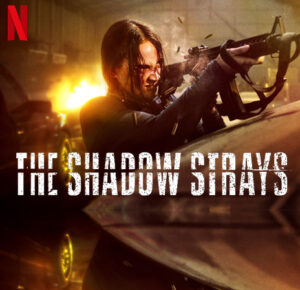
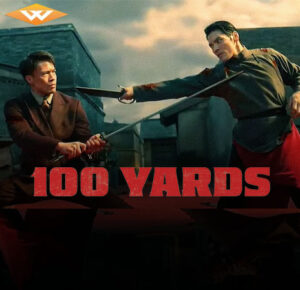
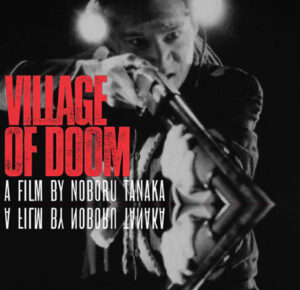

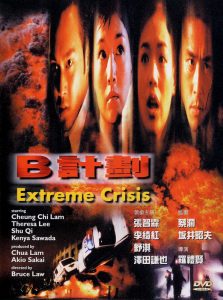



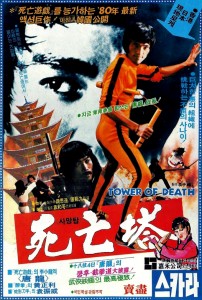



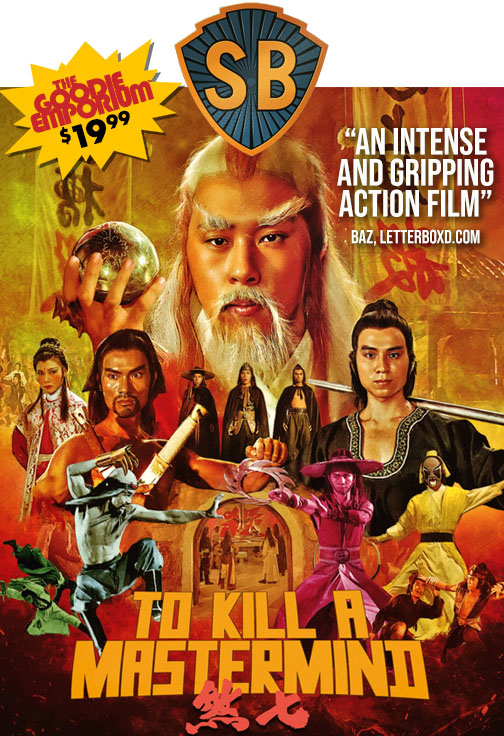



Be the 1st to Comment